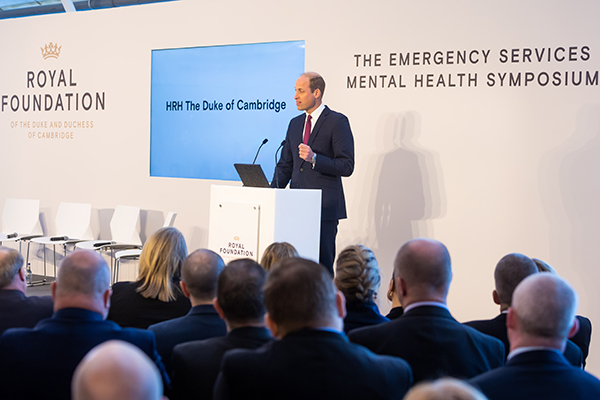I was pleased to learn that BACP is now working with the Royal Foundation in supporting the mental health needs of blue light workers1.
As a retired senior police officer, now working as a therapist, I thought it may be helpful to share with colleagues some advice about working with police officers as clients. As well as drawing on my own experience, some of these insights come from research I have carried out with other police officers who went on to train as therapists2.
Who’s helping who? – Due to the ‘rescuer’ and ‘protector’ self-concept, police officers (like many helpers) find it very difficult to be on the receiving end of a helping relationship. They will likely feel a strong urge to protect you as a therapist, for example by not fully disclosing the extent of their traumatic experiences or minimising certain aspects of an experience or their response to it. Be sure to let your client know that you can 'bear it–warts and all' if they are to feel comfortable in being totally open with you. Or be honest with yourself and refer on, if you cannot face hearing some of the harrowing experiences police officers have to regularly deal with, such as the physical and sexual abuse of children.
'A normal reaction to an abnormal event' – and other such comments often used by therapists to normalise psychological disturbances, such as PTSD, may not work so well with police clients, as traumatic events are ‘normal’ everyday events in their professional lives. They witness things most days that the majority of the public may never have to encounter in a lifetime. Any psychoeducation or other psychotherapeutic intervention therefore needs to be mindful of the client’s lived experience. The more you work with police clients, the more you will learn about the somewhat unique nature of the policing culture and the demands placed on police officers in their day-to-day work (most of which never gets reported in the media).
Don’t overdo the empathy – When you say, 'That must have been really difficult', expect something like, 'I was just doing my job', or 'It’s my duty as a police officer', in response, especially in the early stages of therapy. Too much empathy too soon could result in a police officer client exiting therapy early on, as the experience of being cared for and about is too much of a challenge for their self-concept of being the individual who others call on help and support. Paul Wachtel3 refers to the potential for accurate empathy to 'cut rather than heal' (p. 208) and advocates initially talking about the idea of pain, rather than the pain itself, which I think is a strategy well worth adopting with many police officers, who will have spent years perfecting the ‘art’ of showing no fear or pain in the face of some of the most challenging and frightening situations (e.g., being told to hold your position whilst being attacked by an angry crowd holding weapons and throwing petrol bombs).
Read more...

We're working with Royal Foundation to support emergency workers
New therapists directory is part of a package of mental health measures for blue light workers

BACP Children, Young People and Families division
BACP CYPF is for practitioners and other professionals interested in counselling and psychotherapy for children and young people.

Blogs and vlogs 2023
News and views from members, staff and clients
References
1. BACP Website: https://www.bacp.co.uk/news/news-from-bacp/2021/25-november-were-working-with-royal-foundation-to-support-emergency-workers (accessed 27.11.2021).
2. Flynn, C.A. From Police Officer to Therapist: A Phenomenological Inquiry into the Experiences of those Transitioning from a Career in Policing to Counselling/Psychotherapy. Unpublished MSc Research Paper. Newman University, Birmingham; 2021.
3. Wachtel, P.L. Therapeutic Communication: Knowing what to say when. New York: Guilford Press; 2011.
